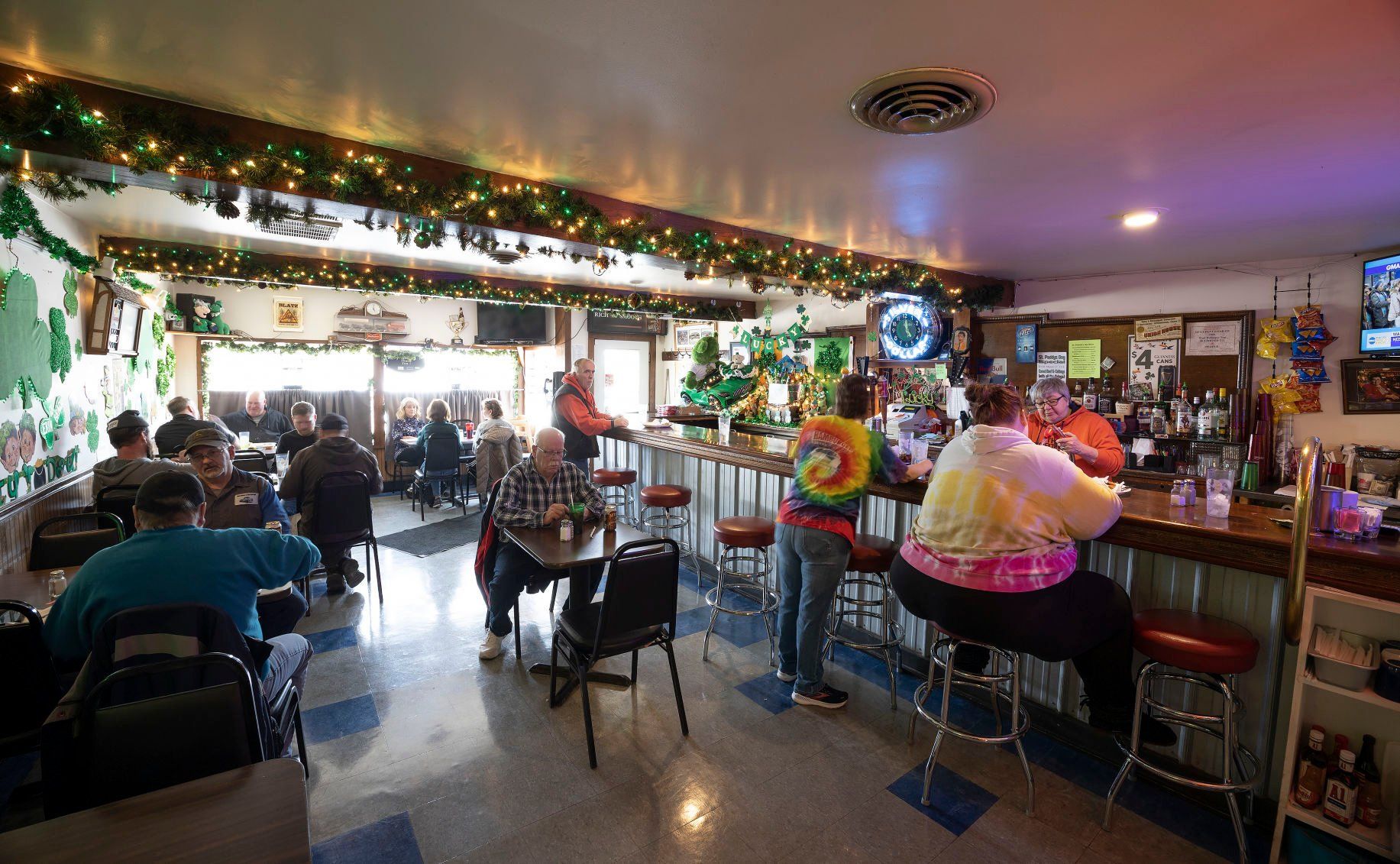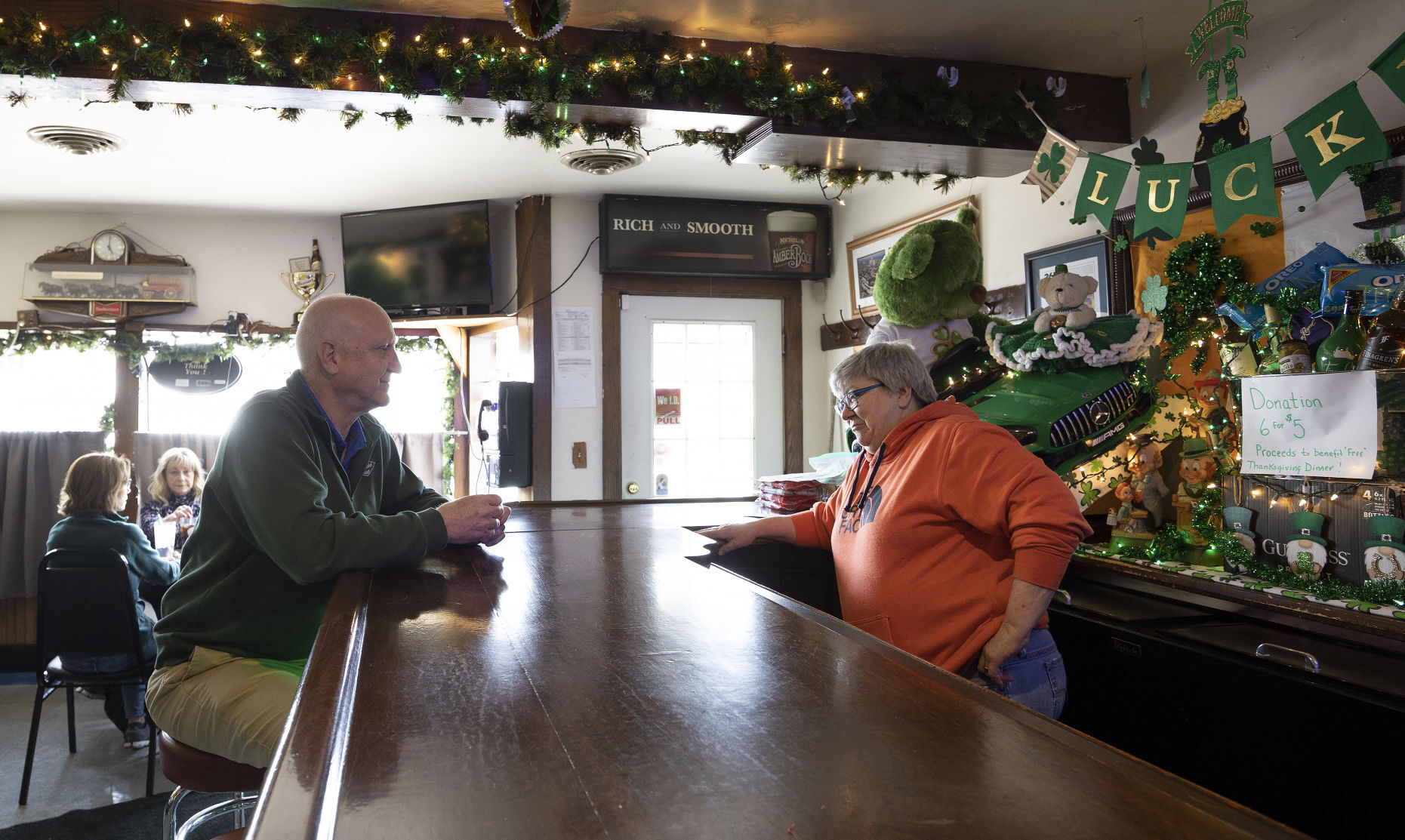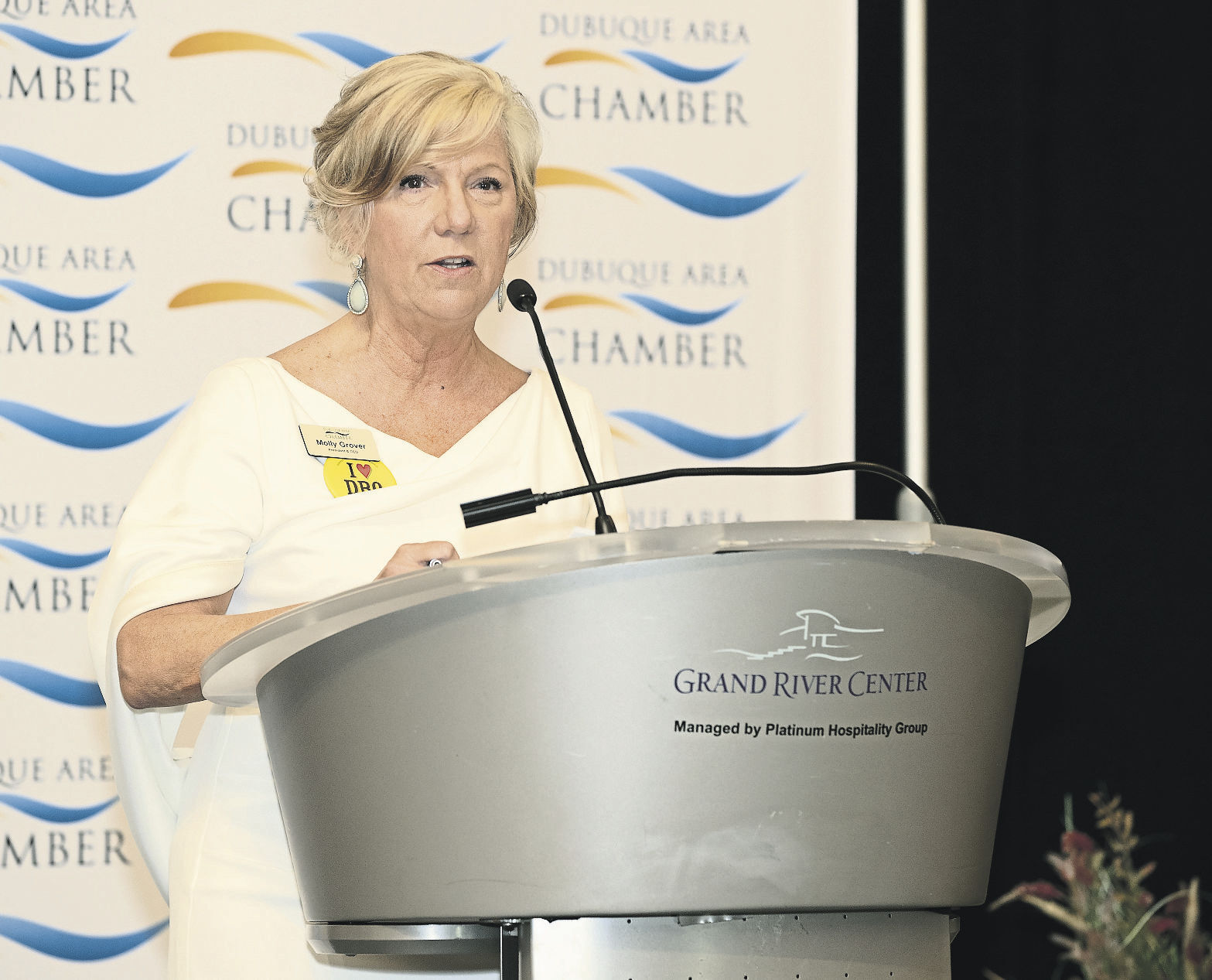In this multi-day series, the Telegraph Herald is examining COVID-19’s local impact two years after its presence was confirmed in the tri-state area. These stories will chronicle the pandemic’s reach into numerous aspects of life, while also examining the lessons learned since March 2020 as well as the virus’s current impact and long-term effects.
Two years after the COVID-19 pandemic started, to-go orders still are popular at Dubuque bar and grill West Dubuque Tap.
“We still to this day have more carryout than before COVID,” owner Kathy Ginter said.
Some customers still are hesitant to return to dining in restaurants, and many West Dubuque Tap customers are seniors, she said.
“And I think that people realized it can be more convenient to take it home,” Ginter said.
There are some regular customers who Ginter hasn’t seen in two years, though others have started to come back.
“Things will never be back to normal,” she said. “But things are better.”
The local business community was greatly impacted by the pandemic, with workplaces, employees and customers adapting. Many of those changes could be lasting.
In southwest Wisconsin, Platteville Regional Chamber Executive Director Wayne Wodarz agreed that, in terms of restaurants, many people still are supporting local businesses with takeout and carryout.
Molly Grover, president and CEO of Dubuque Area Chamber of Commerce, said conversations about COVID-19 are subsiding and changing as the business world looks forward.
“I think we see an exhaustion, and I think there has been, especially recently, a sense, or a feel if you will, of people moving beyond COVID and returning to what our lives looked like before COVID,” Grover said.
But even if many have moved past the sense of urgency and are tired of the constant COVID updates that marked the early days of the pandemic, the mark of the pandemic is still visible in business operations.
Grover spoke to the many strategies that businesses adopted in order to adapt to the pandemic, from investing in new technologies to altering services to meet staffing constraints and customer needs.
“There was tremendous loss and suffering,” she said. “Some businesses didn’t make it. But the silver lining was our resiliency, the innovation, the time people got to spend with family.”
According to the U.S. Census Bureau, there were 5.4 million new business applications filed in 2021 in the U.S. and 4.4 million in 2020.
“Times of crisis actually are a great time of opportunity because you can recognize gaps and you can recognize niches that need to be filled,” Grover said.
County-level census data indicates there were 920 business applications in Dubuque County in 2020, compared to 669 in 2019.
“The dream to own your own business is still alive and well,” Grover said.
Grover said “shop local” movements have gained traction over the past two years as people looked for ways to support their neighbors. Wodarz agreed.
“I really think that many people had that ingrained in them. They’re not quitting because things are loosening up. They’re continuing to spend the money on local businesses,” Wodarz said.
Grover said elements such as in-person meetings and business trips might stay down now that businesses have learned to operate without them.
“Remote working and the ability to have virtual meetings beyond just the physical presence of your business location, those are things that are here to stay,” Grover said.
At Dupaco Community Credit Union, communication specialist Emily Kress said remote working options aren’t going away. Though hybrid in-person and at-home work schedules weren’t entirely new two years ago, they did become much more relevant and familiar.
Many Dupaco employees, especially in operations, still have that flexibility, even though offices are fully open.
“I think that flexibility is definitely something that’s here to stay,” Kress said. “It’s something our employees value.”
But she said most came back to the office when they could, eager for more face-to-face interactions.
“A majority of them are coming back to the office because they really miss that sense of collaboration,” she said.
When the pandemic hit two years ago, Dupaco closed its lobbies. During that time, Dupaco members turned to mobile banking apps and drive-through transactions.
“We definitely saw a huge uptick in numbers,” Kress said.
She said that now, whether someone comes inside depends on the transaction. Though they might still meet in person to open an account or prepare for a loan or big purchase, they might not if all they need to do is deposit a check or make a transfer.
“They learned the experience and benefits and convenience of doing online banking,” Kress said.
Wodarz said that though workforce and supply-chain challenges remain, society appears to be moving past the pandemic.
“Every year is going to present new challenges, but hopefully we have the worst of this challenge behind us,” Wodarz said.






